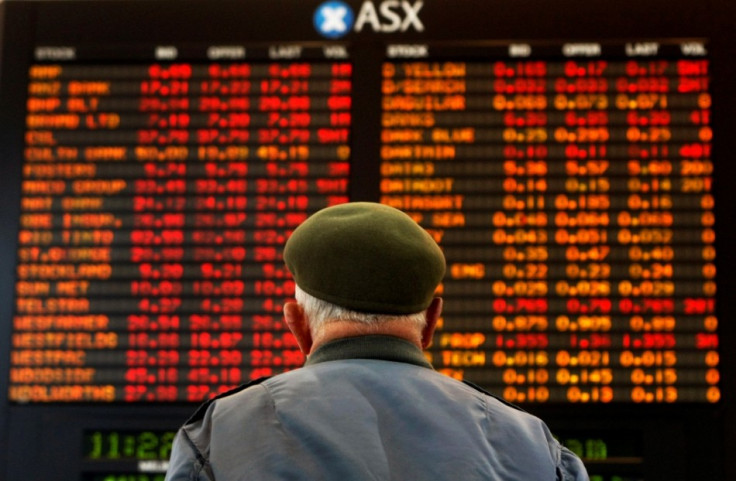Japanese Stocks Lead as Asian Markets Trade Lower

Asian markets outside South Korea traded lower on 6 January, with the Nikkei leading losses on its first trading day of 2014, as downbeat services sector data from China and a stronger yen forced investors to take profits.
The Japanese Nikkei finished 2.35%, or 382.43 points, lower at 15,908.88.
The Shanghai Composite finished 1.80%, or 37.43 points, lower at 2,045.71.
Australia's S&P/ASX finished 0.47%, or 25.20 points, lower at 5,324.90.
South Korea's Kospi finished 0.37%, or 7.14 points, higher at 1,953.28.
Hong Kong's Hang Seng was trading 0.43%, or 98.02 points, lower at 22,719.26.
India's BSE Sensex was trading 0.29%, or 61.29 points, lower at 20,790.04.
Data from China showed that growth in the nation's services sector fell in December, logging its weakest expansion in 28 months, and pointed to slowing growth momentum in the world's second-largest economy.
The HSBC/Markit services sector Purchasing Managers' Index (PMI) dropped to 50.9 in December from 52.5 in the preceding month.
New business expansion dropped to its lowest level in six months.
The HSBC data followed a report by China's National Bureau of Statistics on 3 January that showed service-sector activity growth fell to a four-month low of 54.6.
Elsewhere, in Japan, the dollar-yen traded below the 105 level, below the five-year high it struck on 30 December, 2013.
...traders who hadn't had a chance to react last week have come in with a modestly pessimistic view on equities
Chris Weston, chief market strategist at IG said in a note to clients: "It is a week where event risk in the shape of central bank narrative, economic data and US treasury auctions litter every asset class and geography. With this in mind, perhaps those traders who hadn't had a chance to react last week have come in with a modestly pessimistic view on equities."
Wall Street Mixed
On Wall Street, indices witnessed mixed trade on 3 January after outgoing US Federal Reserve chief Ben Bernanke said the US economy should continue to improve and restated the central bank's commitment to keeping interest rates low.
The Dow finished 28.64 points, or 0.2%, higher at 16,469.99.
The S&P 500 ended 0.61 points, or 0.03%, lower at 1,831.37.
The Nasdaq closed 11.16 points, or 0.3%, lower at 4,131.91.
The decision to cut the Fed's monetary stimulus to $75bn starting this month did not signal any reduction in the central bank's commitment to "maintain a highly accommodative monetary policy for as long as needed," Bernanke told a gathering in Philadelphia.
Meanwhile, Richmond Fed President Jeffrey Lacker told a gathering in Baltimore that the central bank would continue to mull lower stimulus as the labour market improved.
Separately, Philadelphia Fed President Charles Plosser said the central bank faced "immense" challenges as it embarked to trim its monthly asset buys.
Company Stock Movements
In Tokyo, Fast Retailing dropped nearly 6%. Industrial robots maker Fanuc and telecoms major SoftBank lost over 3% each.
Automaker Toyota Motor lost 2%.
In Shanghai, Vanke, China's largest builder by revenue dropped 4.6% despite announcing on 3 January that sales increased 21% last year.
Rivals China Merchants Property and Poly Real Estate fell over 5% on the news.
Jiangxi Copper fell over 3% while Batou Steel lost 2.7% on news that Beijing would push for consolidation in the rare earth sector, asking larger players to acquire smaller ones.
In Sydney, Karoon Gas fell 5% on lower commodity prices. Iron ore miner Fortescue Metals lost 2% after Shanghai steel futures dropped to their lowest in about seven months.
In Seoul, Hyundai Motor added 2%.
© Copyright IBTimes 2025. All rights reserved.






















